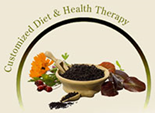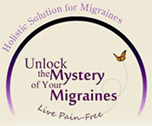





“We got the dietary guidelines wrong. They’ve been wrong for decades!”
If you still believe that eating cholesterol-rich foods will cause your cholesterol levels to skyrocket and increase your risk of heart disease, you have missed the latest the 2015 Dietary Guidelines Advisory Committee (DGAC).
Check this out for yourself:
The Dietary Guidelines Advisory Committee (DGAC) has done a complete about-face. DGAC has recommended limits on dietary cholesterol be removed from the upcoming 2015 Dietary Guidelines for Americans. This is a reversal of the cholesterol limitations that have been widely circulated since the 1960s.
Cleveland Clinic cardiologist Dr. Steven Nissen told USA Today: “It’s the right decision. We got the dietary guidelines wrong. They’ve been wrong for decades.” Indeed, Dr. Nissen estimates that only 20 percent of your blood cholesterol levels come from your diet. The rest of the cholesterol in your body is produced by your liver, which it makes because your body needs cholesterol.
According to Chris Masterjohn, who received his PhD in nutritional sciences from the University of Connecticut: “Since we cannot possibly eat enough cholesterol to use for our bodies’ daily functions, our bodies make their own. When we eat more foods rich in this compound, our bodies make less. If we deprive ourselves of foods high in cholesterol — such as eggs, butter, and liver — our body revs up its cholesterol synthesis.
Dr. Stephanie Seneff, a senior research scientist at the Massachusetts Institute of Technology (MIT), also believes it’s difficult to get “too much” cholesterol in your diet, particularly in the standard American diet. But you may very well be getting too little, and that can cause serious problems.
Dr. Seneff believes, as do I, that placing an upper limit on dietary cholesterol, especially such a LOW upper limit as is now recommended, is likely causing far more harm than good.
But cholesterol has many health benefits. It plays a key role in regulating protein pathways involved in cell signaling and may also regulate other cellular processes, for instance. It’s already known that cholesterol plays a critical role within your cell membranes, but research suggests cholesterol also interacts with proteins inside your cells, adding even more importance. Your body is literally composed of trillions of cells that need to interact with each other. It also plays an essential role in your brain, which contains about 25 percent of the cholesterol in your body. It is critical for synapse formation, i.e. the connections between your neurons, which allow you to think, learn new things, and form memories.
Low levels of HDL cholesterol has been linked to memory loss and Alzheimer’s disease, and may also increase your risk of depression, stroke, violent behavior, and suicide.
It’s also important for the production of vitamin D, which is vital for optimal health. When sunlight strikes your bare skin, the cholesterol in your skin is converted into vitamin D. It also serves as insulation for your nerve cells.
Discover more here
Adapted from:
Mercola.com



Thank you, Suzanne, for the very informative and interesting article.